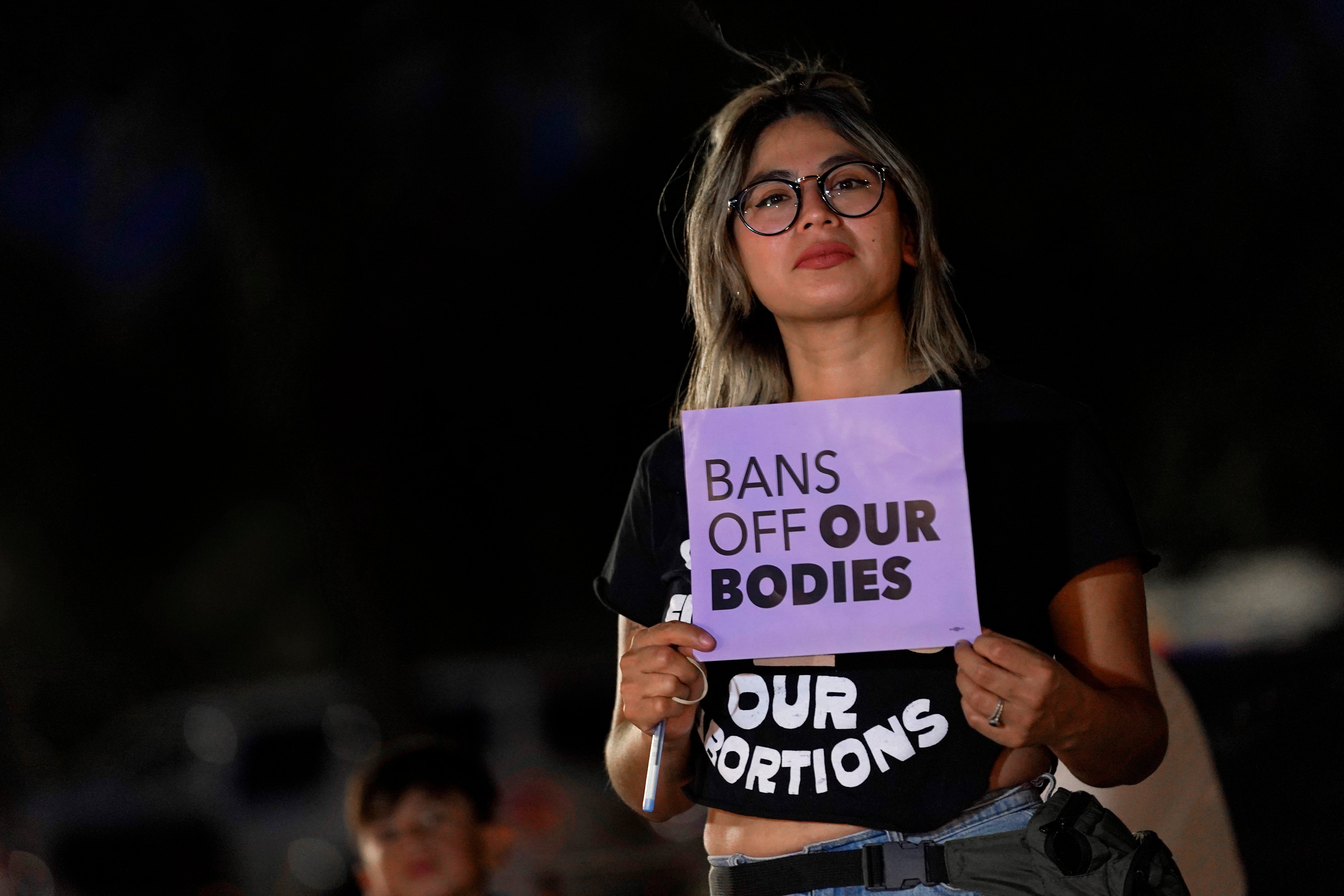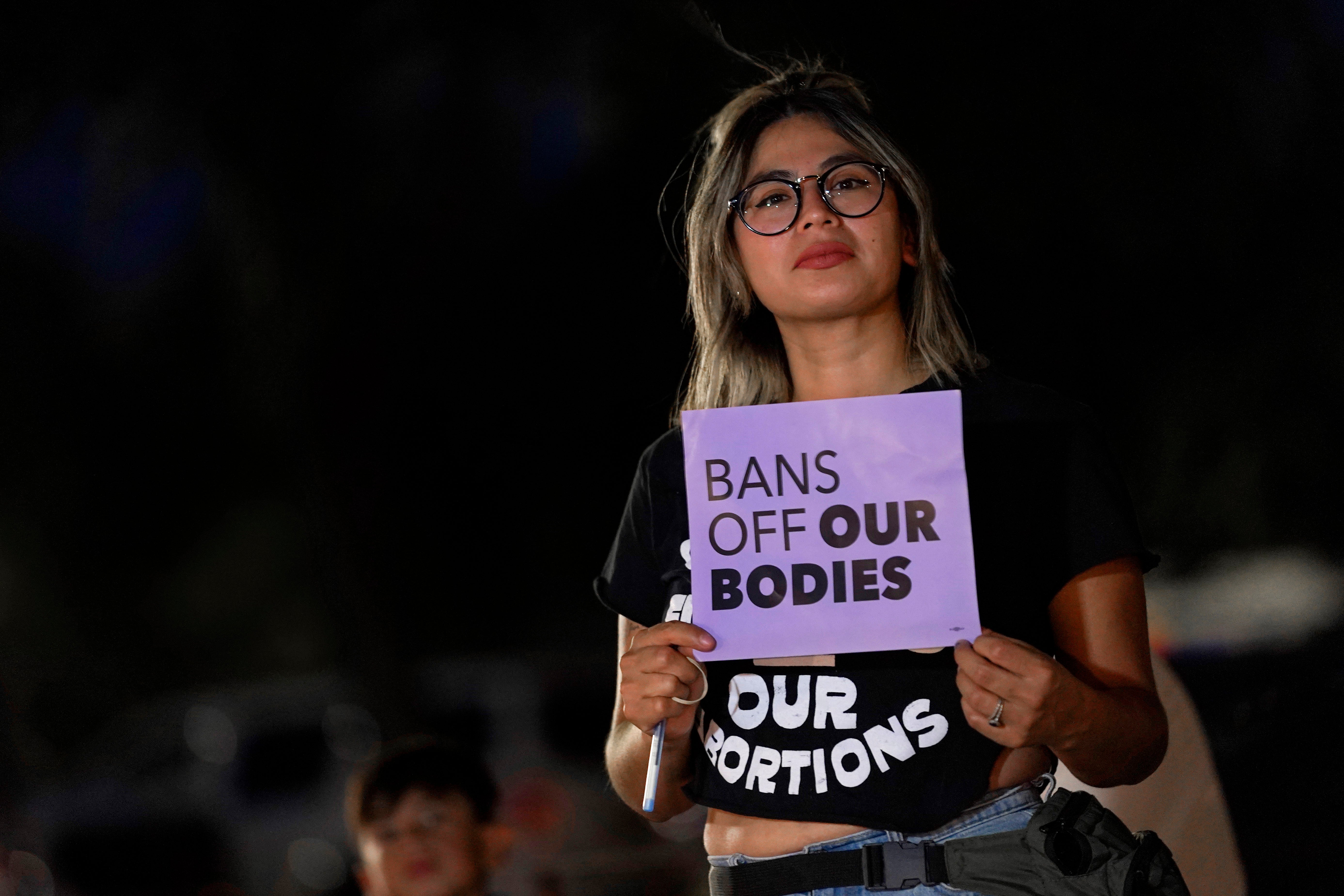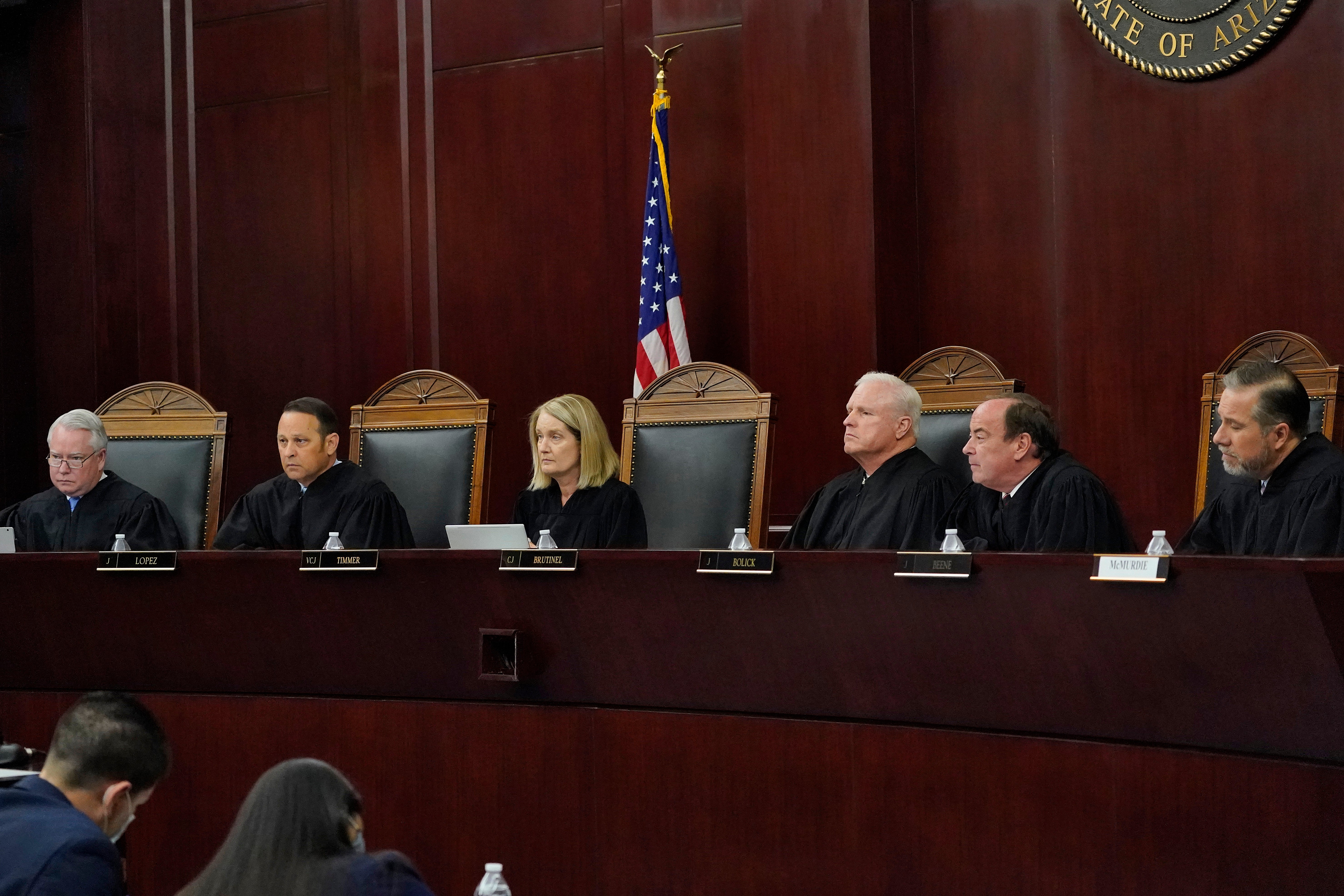Arizona abortion law explained: The strict ruling that brings back a near-total ban from 1864
The law provides no exceptions for rape or incest

Your support helps us to tell the story
From reproductive rights to climate change to Big Tech, The Independent is on the ground when the story is developing. Whether it's investigating the financials of Elon Musk's pro-Trump PAC or producing our latest documentary, 'The A Word', which shines a light on the American women fighting for reproductive rights, we know how important it is to parse out the facts from the messaging.
At such a critical moment in US history, we need reporters on the ground. Your donation allows us to keep sending journalists to speak to both sides of the story.
The Independent is trusted by Americans across the entire political spectrum. And unlike many other quality news outlets, we choose not to lock Americans out of our reporting and analysis with paywalls. We believe quality journalism should be available to everyone, paid for by those who can afford it.
Your support makes all the difference.The Arizona Supreme Court has delivered a landmark decision in giving the go-ahead to enforce a long-dormant law that bans nearly all abortions, drastically altering the legal landscape within the state around terminating pregnancies.
The law predating Arizona’s statehood provides no exceptions for rape or incest and allows abortions only if the mother's life is in jeopardy. Arizona’s highest court suggested doctors can be prosecuted under the 1864 law, though the opinion written by the court’s majority didn’t explicitly say that.
The Tuesday decision threw out an earlier lower-court decision that concluded doctors couldn’t be charged for performing abortions in the first 15 weeks of pregnancy.
How we got here
The law was enacted decades before Arizona became a state on 14 February, 1912. A court in Tucson had blocked its enforcement shortly after the US Supreme Court issued its 1973 Roe v. Wade decision guaranteeing the constitutional right to an abortion.
After the US Supreme Court overturned the landmark Roe decision in June 2022, then-Arizona Attorney General Mark Brnovich, a Republican, successfully requested that a state judge lift an injunction that blocked enforcement of the 1864 ban.
The state Court of Appeals suspended the law as Brnovich’s Democratic successor, Attorney General Kris Mayes, urged the state’s high court to uphold the appellate court's decision.

Who can be prosecuted under the 1864 law?
The law orders prosecution for “a person who provides, supplies or administers to a pregnant woman, or procures such woman to take any medicine, drugs or substance, or uses or employs any instrument or other means whatever, with intent thereby to procure the miscarriage of such woman, unless it is necessary to save her life.”
The Arizona Supreme Court suggested in its ruling Tuesday that physicians can be prosecuted, though justices didn't say that outright.
“In light of this Opinion, physicians are now on notice that all abortions, except those necessary to save a woman’s life, are illegal” the ruling said. The justices noted additional criminal and regulatory sanctions may apply to abortions performed after 15 weeks of pregnancy.
The law carries a sentence of two to five years in prison upon conviction. Lawyers for Planned Parenthood Arizona said they believe criminal penalties will apply only to doctors.
The high court said enforcement won’t begin for at least two weeks. However, plaintiffs say it could be up to two months, based on an agreement in a related case to delay enforcement if the justices upheld the pre-statehood ban.

Politics of the presidential race
The ruling puts the issue of abortion access front and center in a battleground state for the 2024 presidential election and partisan control of the U.S. Senate.
Democrats immediately pounced on the ruling, blaming former President Donald Trump for the loss of abortion access after the U.S. Supreme Court ended the national right to abortion.
President Joe Biden and his allies are emphasizing efforts to restore abortion rights, while Trump has avoided endorsing a national abortion ban and warned that the issue could lead to Republican losses. The decision will give Arizona the strictest abortion law of the top-tier battleground states.
Staunch Trump ally and abortion opponent Kari Lake is challenging Democratic U.S. Rep. Ruben Gallego in an Arizona race for the U.S. Senate seat now held by Kyrsten Sinema, who isn't seeking a second term.

What’s next?
Under a near-total ban, the number of abortions in Arizona is expected to drop drastically from about 1,100 monthly, as estimated by a survey for the Society of Family Planning.
This past summer, abortion rights advocates began a push to ask Arizona voters to create a constitutional right to abortion. If proponents collect enough signatures, Arizona would become the latest state to put the question of reproductive rights directly before voters.
The proposed constitutional amendment would guarantee abortion rights until a fetus could survive outside the womb, typically around 24 weeks. It also would allow later abortions to save the mother’s life, or to protect her physical or mental health.